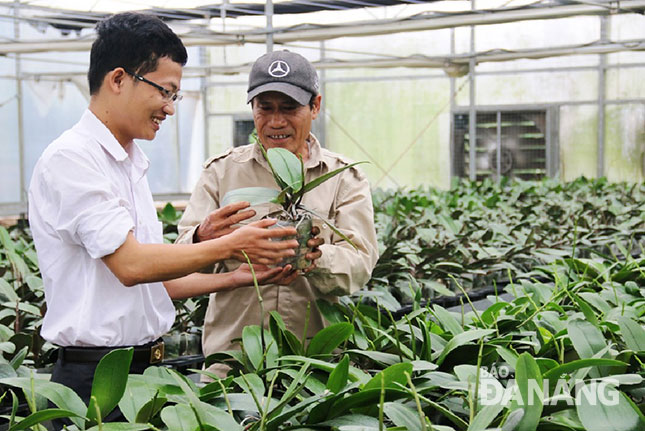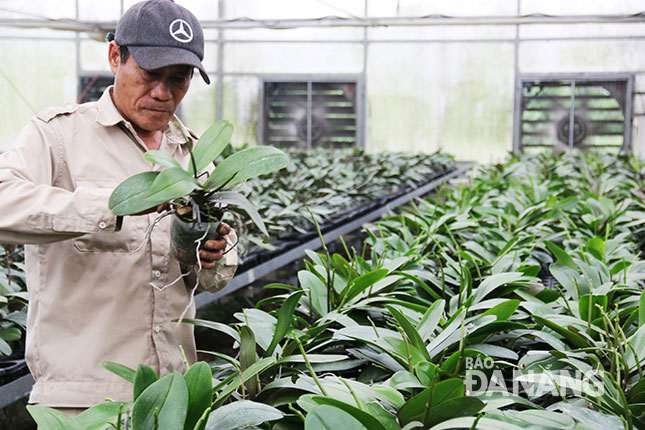Promoting application of advanced technologies in growing flowers for Tet
The Da Nang Biotechnology Centre is currently focusing on promoting the application of biotechnology in producing a variety of robust, disease-free, high-yielding flowers in order to satisfy the high public demand at the upcoming Tet which will begin on 16 February 2018.
 |
| An engineer (left) from the centre introducing a local farmer how to grow seedlings |
Furthermore, the centre’s biotechnological experts are becoming actively engaged in boosting technology transfer activities for local flower growers.
Currently, a total of 6,000 pots of Phalaenopsis orchid for sale at the upcoming Tet are growing well in the centre’s greenhouses which feature automatic irrigation systems and protect this expensive type of flowers from excessive sunlight and rain.
Such a pot of Phalaenopsis orchid is likely to be sold at between 180,000 VND and 200,000 VND for the forthcoming Tet festival.
Over recent years, many local flower growers have produced popular types of flowers, with seedlings sourced from Da Lat City, Ha Noi, Ho Chi Minh City and other nationwide. This issue, therefore, usually results in lots of time and transport expenses, apart from the possible problem of disease-infected seedlings.
In an attempt to address the matter of deep concern, the centre’s staff members have successfully produced high-quality and disease-free seedlings for the local consumer market.
 |
| Taking care of seedlings |
Over recent months, a large number of seedlings of yellow chrysanthemums, lilies and other kinds of hi-quality colourful flowers have been already provided for local dedicated growing areas and independent growers in the communes of Hoa Lien, Hoa Phuoc and Hoa Chau in Hoa Vang District.
In a similar vein, the centre has also developed numerous practical high-quality flower growing projects, and promoted the application of many advanced growing technologies in its floriculture activities.
With hi-tech floriculture, flowers are grown in greenhouses equipped with electrical and automatic irrigation systems, or in soft net-covered farms featuring an automatic misting system. These growing techniques indeed help to prevent high-value flowers from pests and disease-causing fungii.
It is common to see that the application of advanced technologies has resulted in higher productivity and value than traditional cultivation methods.
Apart from their research activities, the centre’s biotechnological experts have enthusiastically instructed local growers how to apply the advanced technologies in their own cultivation activities.
Also, the farmers have been introduced to effective measures to deal with the negative effects of soaking on germination and occurrence of fungal infections on various kinds of flowers.
Through the centre’s practical training courses, local farmers have familiarised themselves with new growing methods, as well as effectively control and minimise the negative impacts of pests and unfavourable weather conditions.